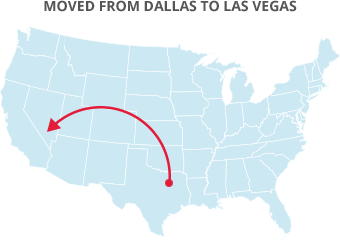

The valuation of goods being shipped in any move of a person, family, or business from one location to another is heavily regulated by the federal government, not the mover.
Yes, generally speaking, your moving company is legally liable for any loss of or damage to your possessions during transit. It’s also liable for loss and damage while its crews are handling your possessions in fulfillment of any other moving services you purchased. Such services should be identified on the bill of lading: packing, unpacking, disassembly and reassembly, for instance.
But there are limits to your moving company’s liability. Those limits are set by the federal Surface Transportation Board’s Released Rates Order. You can obtain a current copy of it here.
The important thing is, know what options are available to you for the protection of your household goods. And know your moving company. Just because a mover tells you his company is “fully insured and bonded” is no guarantee that your possessions themselves are automatically covered. By the same token, your local mover being affiliated with a major national van line is no assurance that you’re protected either. In both cases, you may be required to purchase additional third-party liability insurance. Your mover may offer to sell it to you, but he has no legal obligation to do so. Ask questions up front to find out exactly what’s what.
Keep this in mind when you’re researching your options: Two different levels of moving company liability apply to interstate moves – Full Replacement-Value Protection and Waiver of Full Replacement-Value Protection, or Released Value.

Obviously, Full Replacement-Value Protection gives you the most comprehensive coverage. But opting for it means you’ll pay more for your move. With this level of liability (subject to allowable exceptions in your mover’s tariff), your mover will either make whatever repairs are necessary to restore a damaged article to the condition it was in when they received it from you … or they’ll replace it with an article of like kind and quality … or they’ll simply pay you for the cost of a replacement.
Six dollars per pound times the total weight of your shipment is the minimum level for determining its Full Replacement Value. Some movers set the minimum value higher. Or you yourself may declare a higher value – if you’re not averse to paying more. Whatever valuation you and your mover agree upon, it must be shown on your mover’s tariff. Note also that movers are allowed to limit their Full Replacement-Value liability for loss or damage of exceptionally high-value items. Those would be items valued at $100 or more per pound, such as jewelry, antiques, silverware, china, oriental rugs, and so forth. Get an explanation of all this from your mover. In the end, though, it’s your responsibility make the right declaration.
If you decide to go with a Waiver of Full Replacement-Value Protection, or Released Value, you will, of course, be getting minimal liability protection. But you won’t pay anything for it. What this level of protection does is limit your mover’s liability to no more than 60 cents per pound, per article. Obviously, that’s not going to give you enough of a reimbursement to replace any item valued at more than 60 cents per pound! Things like stereo equipment, gym equipment, computer hardware, and computer software are therefore considerably more at risk. That’s something to think about before you sign on the dotted line!
You may, however, have one more option: your current homeowner’s policy. Take a look at it and talk with your insurance agent to see if there’s anything in it pertaining to coverage of goods during a relocation. If so, you may find the minimum level of mover liability coverage – Released Value – acceptable.
Just make sure you’re clear about what level of protection your moving company is including in his quote: Full Protection or Released Value. That way, there won’t be any surprises with your move – or at least none that you haven’t considered!
Request a free quote

